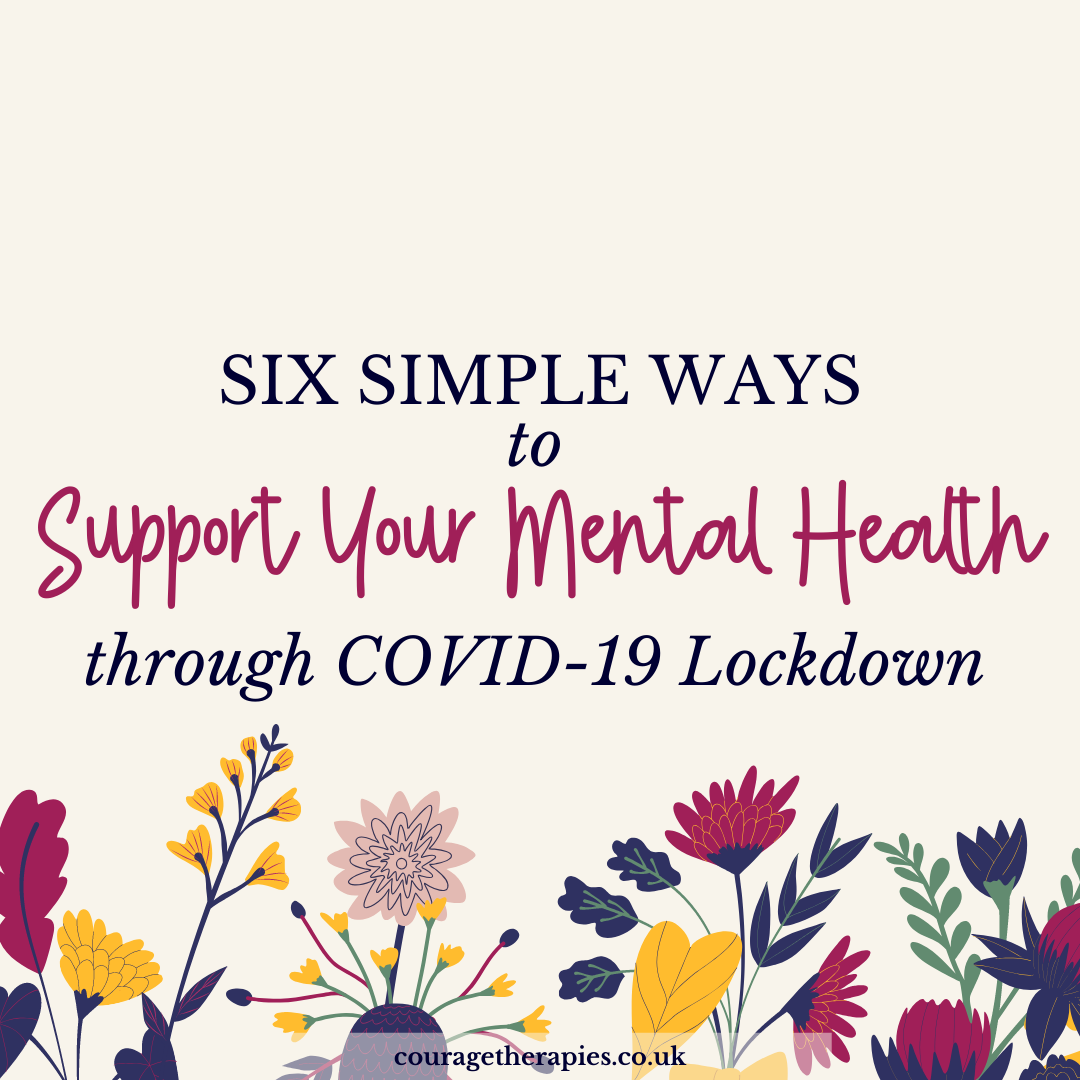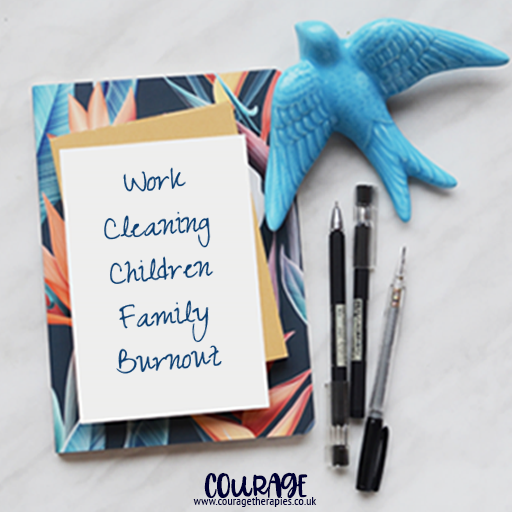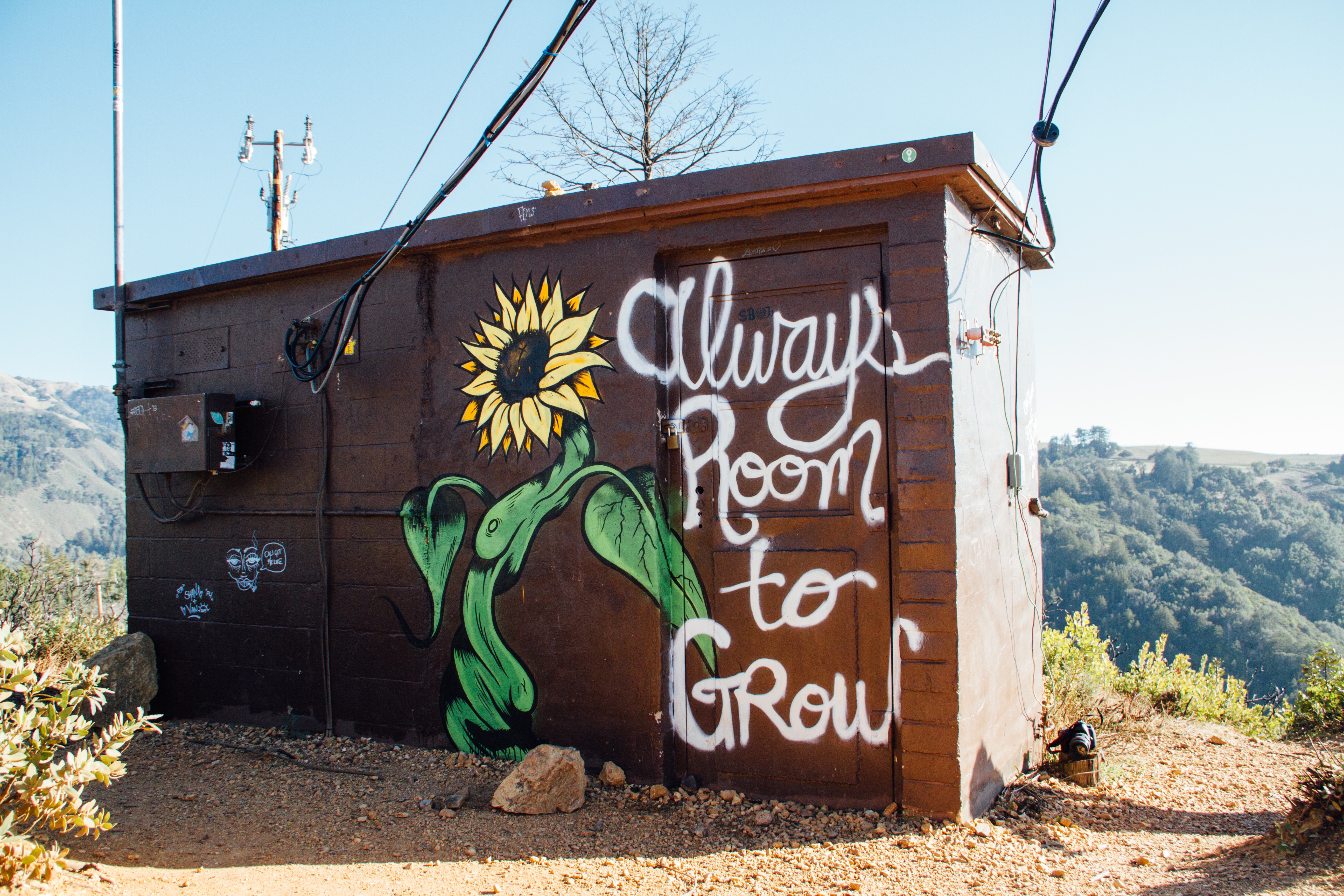
6 Simple Ways to Support Your Mental Health through COVID19 Lockdown
What is trauma?
We know that COVID-19 is a pandemic. We’ve all read about it on the news. What you might not have heard is that it’s also a kind of trauma and as a result we might need some mental health support.
Normally when we hear about trauma we think of road traffic accidents and war but actually it’s more than that. Trauma means:
“an inescapably stressful event that overwhelms people’s existing coping mechanisms.” (van der Kolk & Fisler, 1995)
So even if you’re not directly affected by the virus itself – you’re not sick and no-one you know is unwell or has died from COVID-19 – it can still be a traumatic experience.
We cannot escape what is happening and many people are finding that the changes that have happened as a result of social distancing and lockdown means that their normal coping mechanisms are overwhelmed. Lots of things have changed in a very short space of time. The things we normally do to feel okay aren’t available to us.

So what can we do about it?
It’s a normal response to feel like we can’t do anything about what’s happening to us. Our brain has three main parts to it and most of us will be noticing the switch between them – the emotional roller-coastering.
The first part is totally overwhelmed and it’s survival strategy is to just collapse. It doesn’t have enough energy to hope for positive change and it just wants to disappear. You might find yourself really tired and at best just going through the motions. This is the part of the brain that knows to play dead.
The next part of the brain is the part that does fight or flight. This is the part that will be scaring you with horror stories of what’s going to happen – you’ll lose your job, your home, you’ll get seriously sick, you’ll never recover. This part of the brain wants to mobilise you into action – to either fight your way out of the situation or to run away from it.
But the third part of the brain is the one we want to get back online. This is the thinking part of your brain – the part that takes the emotions and the facts and is able to reason and take sensible adult action. Here are some ways you can access this part of your brain and provide yourself with some mental health support. .
1. Self Kindness
This is the starting point for the next five points. When we are stressed, we tend to fall back on our old stories about who we are and very often this means self criticism.
There is part of you that says really horrible things to you. I want that part of you to hear what I am saying: we are dealing with a global pandemic. You are not lazy or useless or going mad. It does not help to talk to yourself in this way. What does help is a kind, gentle approach, the way you’d talk to your best friend. You are doing your best. Be kind.
What does help is a kind, gentle approach, the way you'd talk to your best friend. You are doing your best. Be kind. Share on X2. Breathe
When your mental health is really suffering, you may roll your eyes or scoff at the idea of breathing being any sort of mental health support at all. It’s actually really important. I know that you know that your struggle is not all in your head. Your brain is in your head but it gets messages from all over the body and breathing is a vital part of healthy mental well being.
When your breathing is short and shallow, your brain takes that as a signal that there is a danger. It takes your thinking brain offline and depending on how it perceives the threat, it will leave you in either a mentally collapsed state or in fight or flight. Developing a good breathing practice (I like 4-4-4 breathing – breathe in for four, breathe out for four, hold for four) gives your brain the message that you are safe.
3. Routine
Two keys parts of trauma are unpredictability and loss of control. Finding a routine that works for you is another way to show your brain that you are okay in this moment. It doesn’t really matter what the routine is so much. It’s more important that it suits you and your needs at this time.
A great place to start is with self care. Depending on where you are that might mean getting up early, going for a run, getting fully dressed with make up ready for a day of meetings on Zoom. Or it might mean brushing your teeth morning and night or putting on clean pyjamas each day. Remember to be kind with yourself about where you are. It’s not a competition and you’re doing your best.
4. Movement
Another key part of trauma is the feeling of being frozen. The best way we can tell the brain that we do not need to be frozen in fear is to literally move around. Again, it doesn’t matter what the movement is but choosing something that feels right for you will be important.
If you’re in a place of feeling like you can barely get out of bed, start with something gentle. Sway to some music, take a barefoot walk around your garden or stretch out. If you have more energy, have a kitchen disco or stick some earphones in and put some uptempo music on for a brisk walk. As soon as you get moving, your brain releases chemicals that help you feel happier.
Joy
I wonder if you’ve managed to notice anything positive about the lockdown situation so far? Maybe it’s that you don’t have to rush around getting out of the door in the morning, maybe you’re saving money on fuel or perhaps you quite like having your other half at home? If you can’t think of anything at all – a memory of a joyful moment can help – a favourite person, pet or place that helps you to feel calm and relaxed.
Regularly taking 20-30 seconds to stop and really notice small amounts of joy is a really powerful way to soothe your nervous system and begin to shape healthier pathways in your brain. The more you look for joyful moments, the more you’ll spontaneously notice them.

Connection
My final tip is to connect. Be mindful about who you choose to connect with. If you’re feeling emotionally delicate, it’s perhaps not the best idea to be in regular contact with people who are especially negative and evoke a feeling of hopelessness in you. Nor is it wise to be spending a lot of time talking to people who criticise you for feeling depressed, stressed or anxious.
Have a think who you know that is able to hold space for you to not be okay. Get in touch with them regularly. One idea I was reminded of today was to send each other a regular emoji to symbolise that you are in each others thoughts – perhaps agree to send a coffee cup emoji when you have your morning coffee.
If you don’t have anyone in your life who can be a positive connection for you, perhaps consider finding a professional to provide you with mental health support. Many therapists like me are now working online to support people like you through the challenges of COVID-19. If you’d like to book in for an initial assessment, you can contact me here.






















